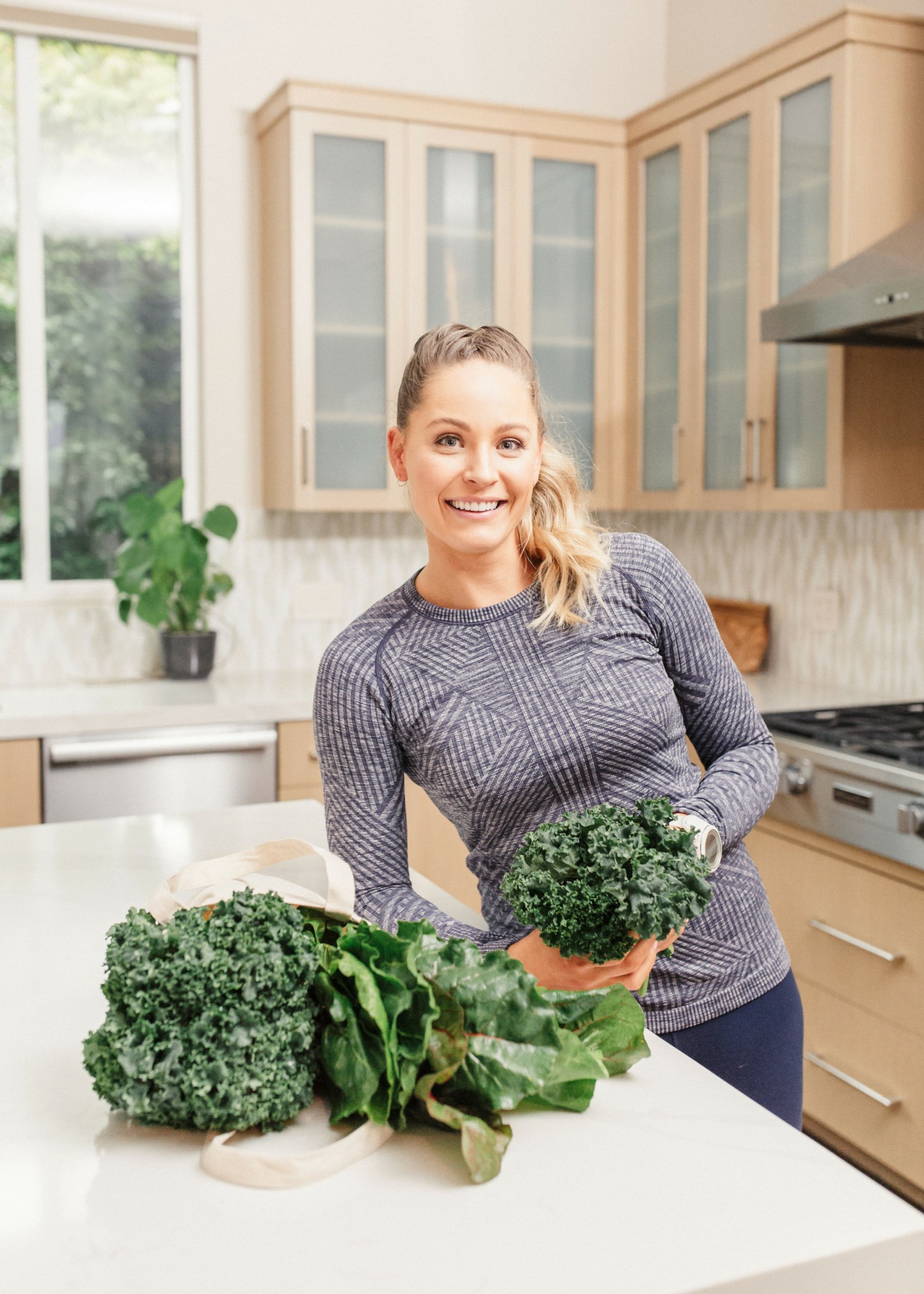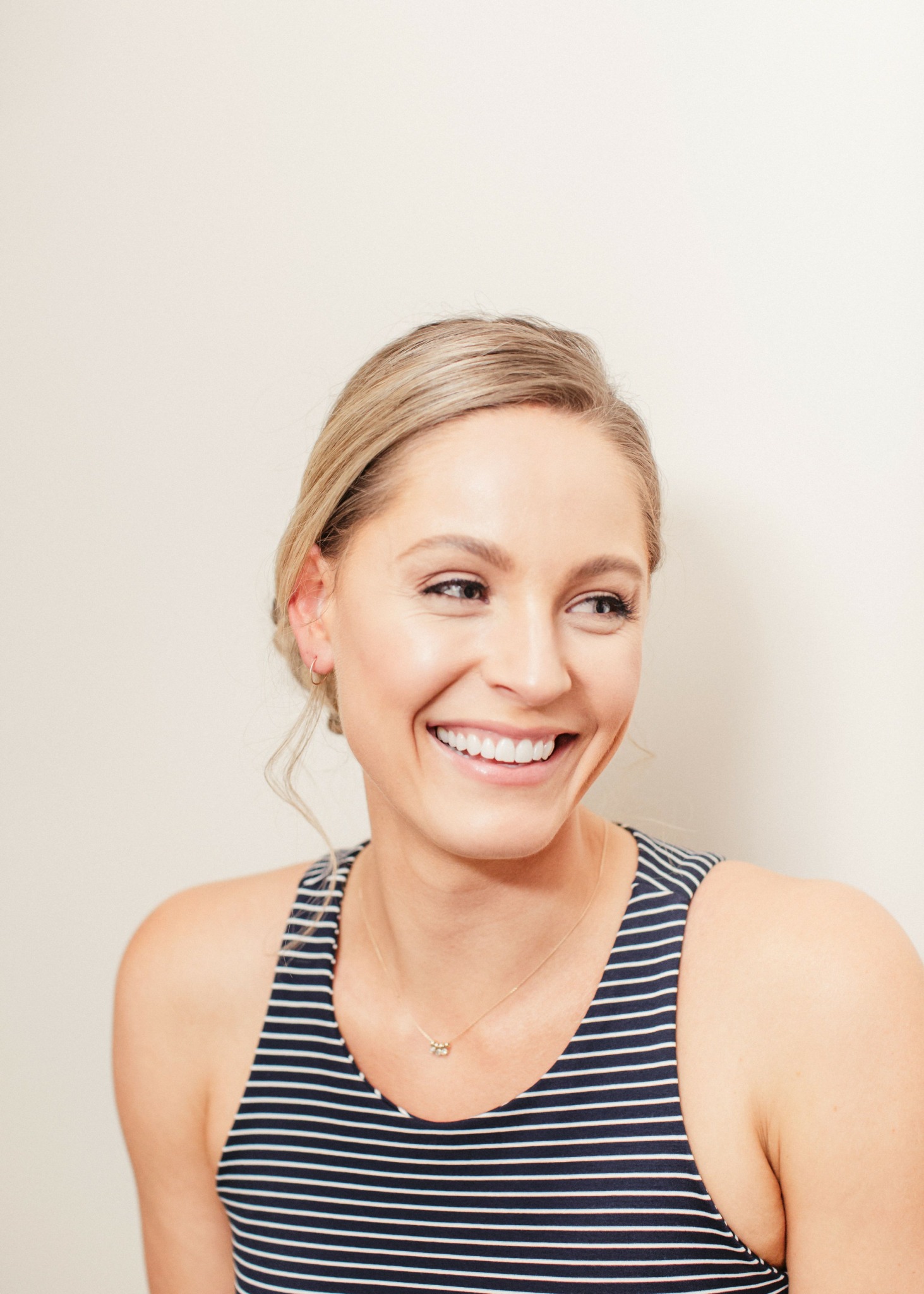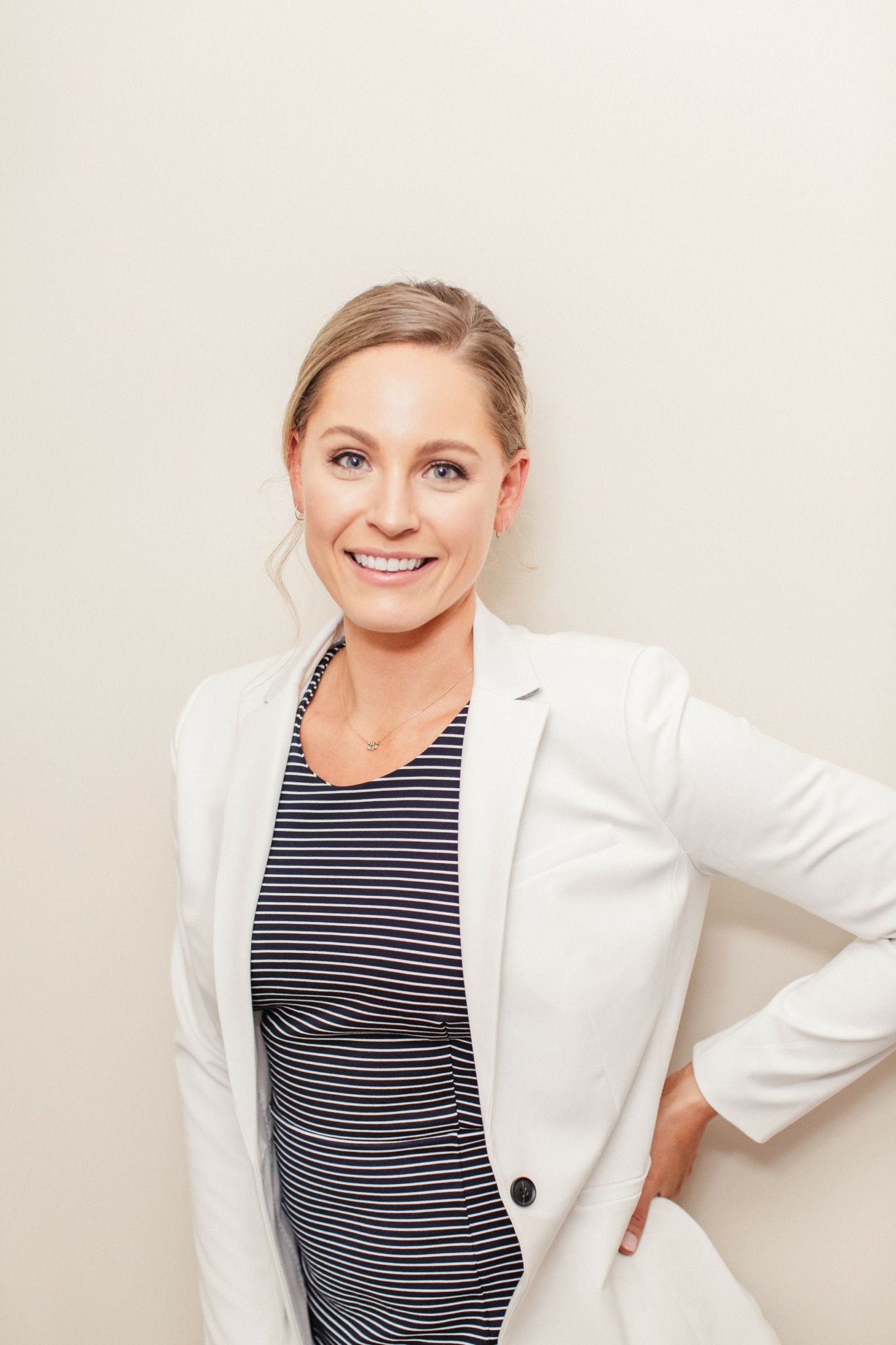We recently connected with KYLA CHANNELL and have shared our conversation below.
KYLA, thanks for joining us, excited to have you contributing your stories and insights. Can you share a story with us from back when you were an intern or apprentice? Maybe it’s a story that illustrates an important lesson you learned or maybe it’s a just a story that makes you laugh (or cry)?
During my dietetics undergrad at UC Davis, I did what every future RD was expected to do: complete three internships—food service management, community nutrition, and clinical. The first two were energizing in different ways. In food service I learned systems and scale in a bustling kitchen; in community nutrition I taught low-income families and kids how to build healthier plates. Both felt hands-on and hopeful.
Then came the clinical rotation at UC Davis Medical Center. The office was in a basement with no windows, and the work felt the same—dim. I have deep respect for clinical dietitians, but I quickly realized the hospital setting wasn’t where I could do my best work. I watched patients receive meals that didn’t inspire them and felt the weight of trying to make change when motivation and environment weren’t on our side. I left each day certain that if I stayed on that path, I’d burn out.
Around that time I discovered an optional fourth internship—sports nutrition with Dr. Liz Applegate, who led the program for UC Davis’ Division I athletes. It wasn’t required; I had to apply and hope for a spot among a small cohort. I got in—and everything clicked. Instead of treating problems after the fact, we were building performance before the gun goes off: fueling to train, recover, stay healthy, and push limits. I fell in love with the work immediately. It was the same science of nutrition, applied in an environment where the client’s goals and daily choices were aligned with the plan.
That pivot shaped the rest of my career. I later met Dr. Stacy Sims (I coached her in CrossFit), and she mentored me through the science of sex differences in sport—a topic that, notably, wasn’t covered in my undergrad. That gap became a calling. I went on to earn a Master’s in Nutrition & Human Performance and the International Olympic Committee’s two-year Sports Nutrition Diploma, and I built a practice focused on helping both professional and recreational athletes perform at their best.
Today I work with athletes who run 100-milers, race 200-mile gravel events, and—just as importantly—busy professionals who want to feel strong, resilient, and well-fueled for life. The lesson from those early internships informs my leadership style every day: the right environment matters as much as the right plan. I’m at my best when I’m proactive rather than reactive, when I can pair evidence with empathy, and when the people I serve are motivated participants in their own change.
Looking back, the basement taught me what I didn’t want. The sports nutrition internship showed me what was possible when purpose, place, and people align. That clarity has guided every decision since—and it’s why I still love what I do.

As always, we appreciate you sharing your insights and we’ve got a few more questions for you, but before we get to all of that can you take a minute to introduce yourself and give our readers some of your back background and context?
About Me & How I Got Here
I earned my B.S. in Clinical Dietetics at UC Davis, where the standard path—food service, community, and hospital clinical rotations—showed me what I didn’t want. The clinical rotation, in particular, felt reactive and misaligned with how I wanted to help people. Then I discovered an optional sports nutrition internship with Dr. Liz Applegate supporting UC Davis Division I athletes, and everything clicked. I fell in love with the proactive side of nutrition—fueling training, speeding recovery, and preventing problems before they start.
That pivot shaped my career. I went on to complete an M.S. in Nutrition & Human Performance, earned the International Olympic Committee’s two-year Sports Nutrition Diploma, and deepened my expertise in sex differences in sport (an area largely absent in my undergrad) through mentorship and continued education. I launched Nutritional Revolution, a practice dedicated to evidence-based performance nutrition for athletes and active professionals.
What We Do (Products & Services)
We provide high-touch, science-backed sports nutrition and nutrition consulting for professional and recreational athletes, as well as active adults seeking long-term health.
Core services include:
Performance fueling systems: sweat testing, sodium/fluid (mg/oz/hr) targets, gut training to tolerate 60–90+ g carbs/hr, race-week scripts (carb-load, hyperhydration), and race-day execution plans.
Race analysis: post-race debriefs that dissect fueling, hydration, GI tolerance, and pacing to refine the next outing.
Body-composition periodization: structured phases (cut → maintenance → performance → reverse diet) that protect health, hormones, and performance—especially for perimenopausal and masters athletes.
Health & labs integration: we coordinate comprehensive labs (e.g., iron, thyroid, lipids, micronutrients), GI/microbiome and urine testing when appropriate, and translate findings into plain-English action plans.
Diet quality & micronutrient assessments: nutrient analyses to close gaps that affect energy, immunity, recovery, and bone health.
Coaching formats: from high-touch 1:1 coaching to lower-touch meal-plan updates with form check-ins.
Problems We Solve
Performance shortfalls: bonking, late-race fade, cramping, overheating, poor recovery.
GI issues: nausea, sloshing, urgent stops; we build up tolerance systematically.
Low energy availability/REDs risks: we use periodized fueling and reverses to protect hormones and bone.
Body-composition goals: sustainable fat loss without sacrificing performance or strength.
Life-stage needs: perimenopause support (protein timing, resistance training synergy, bone and metabolic health).
Lab-informed nutrition: iron deficiency, lipid concerns, vitamin/mineral gaps—addressed with food-first plans plus targeted supplements when needed.
What Sets Us Apart
Evidence → execution: We translate peer-reviewed research into step-by-step, athlete-friendly protocols with clear numbers (carb/hr, sodium/hr, fluid/oz/hr).
Sex-differences expertise: We tailor plans for women across the lifespan, including cycle-aware and perimenopause strategies.
Data-driven & integrated: We pair logs, wearables, and lab work with coaching, and we collaborate with coaches, PTs, and MDs.
Periodized approach: We map nutrition to training phases and life demands—no one stays in a “cut” forever.
High-touch, human coaching: Limited roster, individualized attention, and practical plans that actually fit real schedules.
Who We Serve & Results
We support elite and recreational endurance athletes (gravel, road, ultra running, triathlon, surf) and active professionals who want to feel strong and perform. Clients include Olympians, world-class surfers, national-level cyclists, and industry leaders (with permission, we’ve worked with Studio McGee founder Shea McGee and husband, Syd McGee). Whether it’s a 100-mile ultra, a 200-mile gravel race, or staying sharp for a demanding career, we help people go farther, recover faster, and stay healthy doing it.
What I’m Most Proud Of
I built this business from the ground up—no business classes, just persistence, study, and a lot of trial-and-error. 15+ years later, we’re still here, still evolving, and still earning trust in the endurance community. I’m proud that our clients consistently achieve meaningful outcomes—podiums, PRs, pain-free GI, stronger bones, steadier energy—while protecting their long-term health.
What I Want Readers to Know
You don’t have to choose between health and performance. With the right plan, you can have both.
Details matter. A few numbers—carb/hr, sodium/hr, protein timing—can change your training and race experience.
Your stage of life matters. Especially for women 40+, nutrition and strength timing can be a superpower.
We meet you where you are. Pros, parents, first responders, and busy executives all deserve plans that fit real life.
If you’re an athlete—or an active human—who wants a clear, science-backed plan and a coach in your corner, that’s exactly what we do at Nutritional Revolution.

What do you think helped you build your reputation within your market?
In a word: outcomes—and the clients who talk about them. We’ve never spent a dollar on paid marketing; our calendar has stayed full through word-of-mouth from athletes, coaches, and clinicians who’ve seen results and sent the next person our way. There’s no better marketing than a client who can say, “this worked for me.”
What drives that:
Evidence → execution: We translate research into simple, numeric plans (carb/hr, sodium/hr, protein timing) and track results so clients feel the difference—and can measure it.
High-touch care, limited roster: We keep capacity tight so clients get fast feedback, customized plans, and real accountability.
Collaboration: We coordinate with coaches, PTs, and physicians so the athlete gets one integrated plan.
Consistency & integrity: No gimmicks. Food-first, labs when needed, and clear explanations for every recommendation.
I’m grateful that happy clients built our reputation for us. It keeps us focused on the only “campaign” that matters: delivering results, earning trust, and letting satisfied athletes become the storytellers.

Have any books or other resources had a big impact on you?
Two books fundamentally changed how I run my business. Who Not How reframed my instinct to “do it all” into a discipline of finding the right who—specialists in web, operations, and social—so I can stay in my lane: coaching, protocols, research, and partnerships. Practically, that meant writing outcome-based briefs, setting clear KPIs, and building simple SOPs so great people can do great work without me bottlenecking the process.
Buy Back Your Time by Dan Martell was the companion playbook. The time audit forced me to separate high-value, energizing work from tasks that were low revenue and low joy. From there I:
delegated “red” tasks and tightened my calendar to protect deep work,
productized recurring services and tightened scopes, and
built repeatable checklists for onboarding, meal-plan builds, race-week scripts, and post-race reviews.
Together, these resources helped me scale quality rather than just quantity—freeing up time to serve athletes better, create evidence-based content, and pursue partnerships—while keeping the business sane and sustainable.
Contact Info:
- Website: https://nutritional-revolution.com/
- Instagram: https://www.instagram.com/nutritionalrevolution/
- Facebook: https://www.facebook.com/nutritionalrevolution/
- Linkedin: https://www.linkedin.com/in/kyla-channell-ms-23b07a100/
- Youtube: https://www.youtube.com/channel/UCjMnRPmIEhTj2GYQQ4ZIxfw
- Other: https://open.spotify.com/show/3cvRSBAiJaeio07rcGO88M?si=950e3aa5b5804aff




